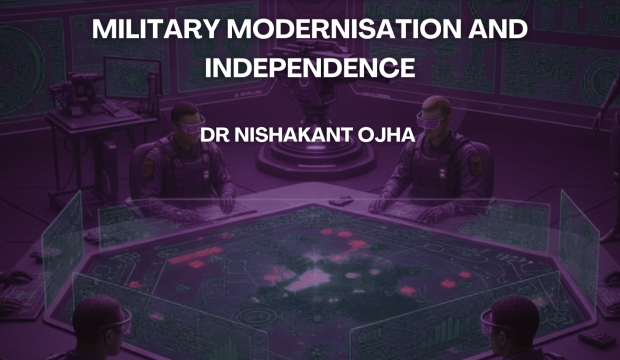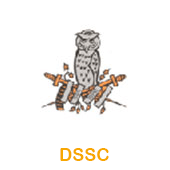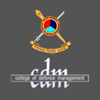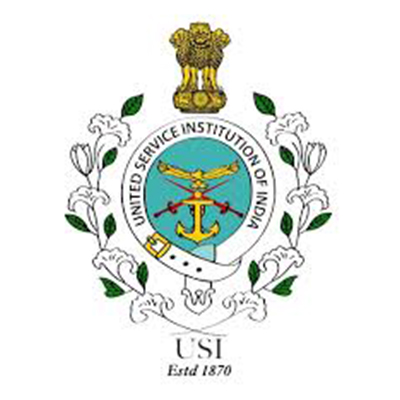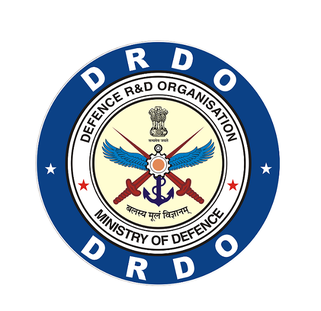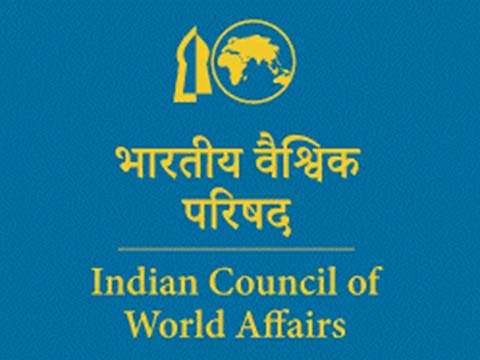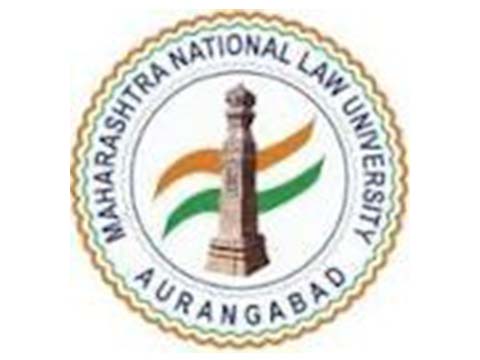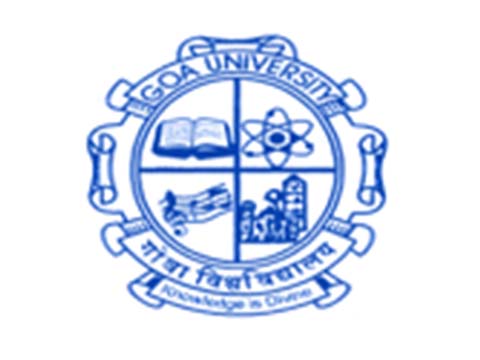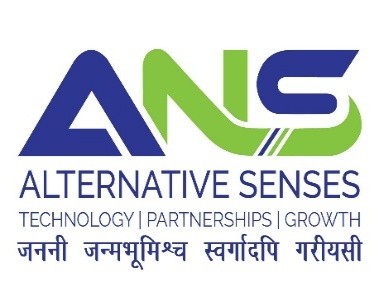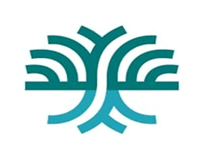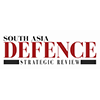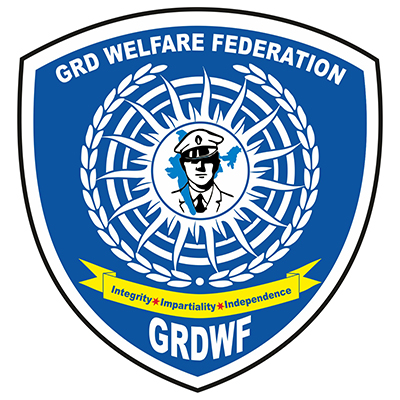“We, the leaders of Japan, the Republic of Korea (ROK), and the United States, convened at Camp David to inaugurate a new era of trilateral partnership. We do so at a time of unparalleled opportunity for our countries and our citizens, and at a hinge point of history, when geopolitical competition, the climate crisis, Russia’s war of aggression against Ukraine, and nuclear provocations test us.” [1]
Introduction
East Asia continues to be region characterized by several power pockets with contestations that have remained largely unresolved. The end of World War II and Japan’s surrender to the Allied powers left a power vacuum in East Asia. However, this power vacuum was short lived as the US devised the mechanism of powerplay in the region to bring about a liberal hegemonic order; attributed as the ‘Hub and Spokes’ model. Although the intentions of creating such a model remains debated, it has been attributed as step by the US to safeguard its interests in the region by expanding and bringing countries like Japan, South Korea and even Taiwan under its security umbrella. This championed diplomacy by the US has shaped not only bilateral relations but also trilateral and multilateral relations amongst several stakeholders engaged in the East Asian region today.
China’s belligerence in the recent times has triggered ‘ripples of apprehension’ for countries under this security umbrella to revisit their relations with each other and the US. South Korea and Japan were only recently able to overcome their colonial antagonism to work cohesively in the interest of national and regional security. Apart from the China factor, North Korea’s unprecedented nuclear tests since 2022 have overturned dynamics in the Korean peninsula and beyond. The détente reached between South Korea and Japan is being considered as a step towards building stronger alliance and further maintain a balance with the US on the security front.
Camp David [2] has remained a significant retreat for US diplomacy and has recorded visits by several head of states in the past. Certainly, South Korea and Japan’s invitation to Camp David has not only implied a revival of the US security alliance in East Asia, but also a new era of trilateral politics for the region. By any measure, it was the first stand-alone meeting and certainly a diplomatic watershed moment. In addition to making a joint statement, Seoul, Tokyo, and Washington agreed to a set of principles and pledged to consult when coordinating “responses to regional challenges, provocations, and threats.”
The summit has established an ambitious agenda for trilaterals’ that appear to be promising and further provides substantial institutional roots in the face of the near inevitability of future political headwinds emerging from the region. The East Asian region is akin to a game of Jenga, a single move has the potential of destroying the whole edifice [3] and therefore, it is imperative to study and comprehensively understand the objectives and possibilities outlined at the Camp David Summit.
Factors Leading To The Camp David Summit
The war in Ukraine has altered power dynamics challenging notions of collective security led by the US and NATO. East Asia currently has challenging hotspots spread across the region; North Korea, China and Taiwan. North Korea’s proliferation of nuclear and ballistic missiles is an alarming update for the Korean Peninsula and Japan. Although South Korea remains superior to the North in terms of arms and weapons, the relentless tests conducted by a rouge state like North Korea is a serious threat.
The Great power rivalry between the US and China is sharpening. China has constantly flagged US hegemony in the region as a threat to its rise and proposes a ‘multipolar’ world based on ‘tianxia’[4/5] principles. China’s notion of multipolarity is defined by leveraging policies that would challenge the US hegemony in the East Asian region and beyond. Further, a strategic triangular relation between North Korea, China and Russia triggered by the US-ROK-Japan relations is leading to bloc politics in the East Asian region. Russia has established closer ties in the wake of the Ukraine war with North Korea and so have Moscow and Beijing ties further strengthened. Therefore, a security dilemma that prevails in the region and requires a comprehensive and cooperative approach by stakeholders.
The US has maintained and balanced its bilateral relations individually with Japan and ROK through the aforementioned Hub and Spokes Model. However, the existing the challenges requires for the US to have a warm and cordial relations between two of its strong Asian partners; Japan and ROK. The contentious colonial antagonism between the two countries had served as a disconnect between the US-Japan and US-ROK relations. But the new found détente between the US’s two closest ally in the region had to be forged into a more institutionalized framework. This framework will fulfil dual purpose of protecting US interests in the region to and the closer bilateral relation between Japan and ROK would maintain the US security umbrella.
Moreover, US led minilateral partnerships such as QUAD with India, Japan and Australia and then AUKUS with Australia and the United Kingdom is a step towards integrating a cohesive Indo-Pacific Strategy.[6] Institutionalizing Camp David with two of its greatest Asian allies would allow the US to further stitch another regional element to its larger Indo-Pacific Strategy and raising the significance of minilateral structures in the East Asian region.
Additionally, the challenges from non-traditional security have been amplified especially after the COVID-19 pandemic.[7] Building sustainable and resilient global supply chains without any actual dependence on China has been a priority agenda for the US. Technology domain between the US, Japan and ROK can be further leveraged to eliminate further disruption of supply chains. A synergistic trilateral relation between these countries can go beyond technology and issues related to climate change, people to people connect and public health be also addressed.
Outcomes of Camp David: An Assessment
The Fact Sheet and Joint Statement released by the White House highlighted a plethora of cooperative measures that will further shape the US-ROK-Japan relations and also provide stability to the region. The Fact Sheet charted out new areas as well as revived areas of cooperation between the three countries. The striking outcome of the Camp David was to set up Annual Leaders’ Meet, followed by meetings between Foreign Ministers, Defence Ministers, National Security Advisers and even Ministers for Commerce and Trade. An initiative for an Assistant Secretary led ‘Annual Trilateral Indo-Pacific Dialogue’ was also charted out.
Further, the striking outcome of this summit was the re-assertion of shared security interests between Japan and the ROK that is well reflected in the initiative to have a trilateral working group to counter cyber threats from North Korea. The ‘challenges’ and ‘threats’ have been clearly defined by the Camp David Summit- North Korea and China, regionally and Russia’s invasion of Ukraine, globally. US President Joe Biden, Japanese Prime Minister Fumio Kishida and ROK President Yoon Seok Yeol have shown solidarity for complete denuclearization of North Korea and the Korean Peninsula.
Additionally, a new security and cooperative framework for the Indo-Pacific was emphasised. The US, Japan and ROK will share real time information on any ‘escalating’ situation like activity and establish a trilateral mechanism that would actually build capacity and maritime domain awareness not limited to these three countries but South East Asia and Pacific islands. The United Nations Convention on the Law of the Sea (UNCLOS) was flagged as a reminder to belligerent China to uphold the existing sou moto in the Indo-Pacific and across the Taiwan Strait. Furthermore, their symbolic gestures of reaffirming their shared commitment to a Free and Open Indo-Pacific without any unilateral use of force to change the status quo, as well as peace and stability across the Taiwan Strait, should not be overlooked. ASEAN centrality was highlighted.
Economic and Technological cooperation was also weaved into the Camp David framework to bolster feasible and tangible solutions to building global supply chain resilience. A Supply Chain Early Warning System (EWS) Pilot has been promised that would enhance exchange of ‘periodic information’ on ‘priority products and materials’ and further establish information on ‘disruption of crucial supply chain’.
Nevertheless, the prominent sentiment that was established by the leaders at Camp David was “commitment to consult’[8] . The Treaty of Mutual Cooperation and Security between Japan and the US, in 1960 granted the US to use its air, land and naval forces for the protection of Japan and the Far East.[9] The Mutual Defence Treaty between the US and ROK signed in 1953 highlighted a similar provision for the US to intervene if any ‘armed attack on the in the Pacific area or the parties in the territory’.[10]
However, Camp David’s ‘Commitment To Consult’ has established a clear understanding between the three parties that any security threat to one of the parties will be counted as a threat to all and that would it require a mutual decision and deliberation for response. This can be considered an inordinate diplomatic achievement by the US to manoeuvre bilateral relations between Japan and ROK. Additionally, ROK’s move to overcome its colonial antagonism against Japan and aligning its strategic interests with the US and Japan implies its determined role as a ‘global pivotal state’.[11]
The Joint Statement released by the leaders at the Camp David Summit also highlighted a cooperative action against the growing menace of human rights abuse in North Korea. This addition to the statement implied the three leaders’ commitment to go beyond security issues in the region.[12] Furthermore, Japan and ROK have firmly settled on reducing energy imports on Russia, opening a new avenue that can be pursued by the three countries on strategic energy cooperation.[13] The South Korean Government has initiated to reduce its dependence on energy imports from Russia by increasing imports from the Middle East since March 2023. [14]
The willingness of the three countries to achieve goals for collective security in the region and beyond is commendable and this indisputable consensus was achieved by fixing the weak link in the US hub and spoke system; détente between Japan and ROK. Regardless of the optimistic tone set by Camp David, there are certain gaps that it failed to address or perhaps took into account.
Will The Spirit Of Camp David Last?
The Camp David Summit has emerged as a win for bolstering a new era of trilateral relations between the US-Japan-ROK. The Summit is a step closer to institutionalizing the relations, but certain challenges and obstacle still remain that can put a halt to this emancipating optimism.
- South Korea’s Nuclear Dilemma. Presently after the repeated nuclear tests conducted by North Korea, there is a growing unanimity amongst South Koreans for the country to pursue its own nuclear program. The dream of a Korean unification has become distant and now with deteriorating environment, the sentiments of the South Korean people are growing towards Seoul pursing an indigenous nuclear regime. According to a 2021 survey conducted by the Chicago Council on Global Affairs and the Carnegie Endowment for International Peace, 71% of South Koreans support creating an indigenous nuclear weapons program. Furthermore, the public (67%) favours the creation of an independent arsenal to the relocation of tactical nuclear weapons from the United States to the Korean Peninsula (9%). [15] The Yoon Seok Yeol Administration is also facing a domestic backlash for giving up ROK sovereignty to the US post his bilateral visit to Washington in April 2023.
- Economic Dependence on China. After reinstating the CHIP4 alliance as a measure to reduce the dominance on China for semiconductors, the homegrown semiconductor industries of the ROK and Japan are still heavily interconnected with their Chinese counterparts. Here again, the domestic sentiments of Seoul and Tokyo on the US export control ban on Chinese semiconductors is debatable. Big tech giants from both Japan and ROK are running operations in China and much work still needs to be done in getting these industries to buy into the US’s strategy of reducing dependence on Chinese chips. The joint statement at Camp David failed to make any statements related alternatives on the existing semiconductor supply chain, a silent irritant yet to be addressed by the three leaders. The ROK simultaneously has also initiated talks with China to strengthen dialogue and cooperation on semiconductor industry supply chains. Moreover, Japan and ROK have huge trade figures with China beyond semiconductors. Any hardlines against China may result in severe economic fallouts for both Japan and ROK.
The discharge of treated nuclear water from the Fukushima Daiichi plant into the Pacific Ocean has further strained relations between Japan and China. However, he ROK has shown immense support for its new found partner. China has curbed imports on Japanese sea food. [16] As forementioned, the politics in East Asia is akin to fragility. Following the growing contention, China and the ROK have agreed to open three way leader talks with Japan that may go against the spirit of Camp David.
Differing Take on Taiwan. The ROK continues to remain a variable when it comes to addressing the Taiwan issue. Despite Yoon Seok Yeol’s conservative political approach, the ROK foreign policy still indicates a constructive relation with China whilst also maintain close alliance with the US. The newly released National Security Strategy [17] of the ROK underpins pragmatic and nuanced approach towards China as compared to that of Japan and the US. Although the Yoon administration has reversed the previously THAAD negotiations with Beijing by forging closer ties with Tokyo and Washington, Seoul’s commitment on the Taiwan issue remains unclear. Most Koreans see the commitment of the Yoon administration as a compromise of the ROK’s national security by placing the country in an unwanted strained relation with China.
ASEAN Centrality and The Indo Pacific. The Camp David Statements have highlighted the significance of engaging with ASEAN countries and promote an ASEAN led architecture. However, it failed to provide any details on how the US, Japan and the ROK will engage with the ASEAN nations. Further, institutionalizing the Camp David Summit may hint moving towards power polarization where these ASEAN countries may have to resort to bloc politics; a Cold War mentality. Additionally, the Indo-Pacific remains a largely contested geopolitical area with little to no consensus between all stakeholders. The Indo-Pacific is plagued by inherent challenges and the dynamics of this trilateral framework may further complicate it. Certainly, it provides a premise for interacting with other minilateral structures such as the QUAD and AUKUS, but all these share similar cooperative agendas. Therefore, ensuring true cooperation and synergy between the several stakeholders and these minilateral frameworks will be important in truly reaching the goal of Free and Open Indo-Pacific.
Political Discontent. The détente reached between Japan and ROK is one of compromise. The colonial antagonism that has kept the two countries from pursuing closer ties may have been put aside, but the sentiments amongst the diaspora continues to remain salient. Activists in Seoul have been expressing the discontent over Yoon’s administration for the compromise reached for the so called ‘comfort women’ with Japan. The Yoon administration is known for its staunch conservative practices, especially towards North Korea but the sudden détente has placed Yoon’s upcoming candidature into uncertainty. ROK and Japan have restored military intelligence sharing under the General Security of Military Information Agreement (GSOMIA) and reversed trade relations.[18] However, ROK’s Progressive Party has criticized Yoon’s decision to ally with Japan. Similar sentiments against Japanese PM Fumio Kishida have been raised by the conservative parliamentarians.
Conclusion
The Camp David Summit has certainly opened a new chapter of trilateral politics between the US, Japan and South Korea. It can be deemed rightfully that the weak link to the US’s salient Hub and Spokes have been removed. The spirit of Camp David has echoed an optimistic tone for revived strategic landscape of the Indo-Pacific and the East Asia, with a shared vision of countering ‘challenges’ and ‘threats’ in the region.
The Summit has categorically addressed the proliferation of nuclear missiles by North Korea and countering Chinese belligerence in the security, economic and non-traditional domain.
Despite the success of the Camp David, there remains unresolved challenges that should be approached to keep the momentum between the US, Japan and South Korea alive. For the trilateral alliance to maintain momentum, the leaders must produce genuine and tangible solutions to the challenges highlighted at Camp David, while also acknowledging domestic political sentiments. Additionally, ASEAN and even India will continue to assess the impact of the trilateral cooperation and further leverage through existing minilateral structures.
As geopolitical headwinds continue to shape strategies in East Asia, the potential of the Camp David Summit will be put to test.
DISCLAIMER
The paper is author’s individual scholastic articulation and does not necessarily reflect the views of CENJOWS. The author certifies that the article is original in content, unpublished and it has not been submitted for publication/ web upload elsewhere and that the facts and figures quoted are duly referenced, as needed and are believed to be correct.
References
- The White House (2023), “The Spirit of Camp David: Joint Statement of Japan, the Republic of Korea, and the United States”, 10 September, URL: https://www.whitehouse.gov/briefing-room/statements-releases/2023/08/18/the-spirit-of-camp-david-joint-statement-of-japan-the-republic-of-korea-and-the-united-states/
- The White House (2023), “Camp David”, 13 September, URL: https://www.whitehouse.gov/about-the-white-house/the-grounds/camp-david/
- Bicker, L. (2023), “US-Japan-S Korea Summit A Coup For Biden But Will Détente Last?” [Online: web] Accessed 10 September 2023, URL: https://www.bbc.com/news/world-asia-66543514
- In its essence, Tianxia 天下, or ‘All-Under-Heaven’, can be taken as a concise way of speaking of the traditional Chinese vision of the world order. It is traditional in that its roots go back to philosophical texts as early as the Zhou period (1046–221 BCE). The world view summoned by Tianxia developed dynamically as the nature of the Chinese polity, sometimes represented by a grouping of rival states and other times a single mega-state, evolved. Confucian norms of hierarchy and morality deeply inform the concept of Tianxia, which remained a powerful influence through China’s dynastic history.
Wang, B. (Ed.). (2017). Chinese Visions of World Order: Tianxia, Culture, and World Politics. Duke University Press. http://www.jstor.org/stable/j.ctv11cw3gv
Klinger, B. (2023), “The Camp David Was A Success But Challenges Remain on China And North Korea” [Online: web] Accessed 11 September 2023, URL: https://www.heritage.org/asia/commentary/the-camp-david-summit-was-success-challenges-remain-china-and-north-korea
- Lim, E. (2023), “Could The Trilateral Summit At Camp David Be A Game Changer?” [Online: web] Accessed 12 September 2023, URL: https://www.globalnk.org/commentary/view?cd=COM000121
- Ibid
- Ministry of Foreign Affairs Japan, Accessed 12 September, URL: https://www.mofa.go.jp/region/n-america/us/q&a/ref/1.html
- Yale Law School, The Avalon Project, Accessed 12 September, URL: https://avalon.law.yale.edu/20th_century/kor001.asp
- CSIS (2023), “The Camp David US-Japan-Korea Trilateral Summit: An Exchange Among CSIS Japan And Korea Chair” [Online: web] Accessed 17 September, 2023, URL: https://www.csis.org/analysis/camp-david-us-japan-korea-trilateral-summit-exchange-among-csis-japan-and-korea-chairs
- Ibid
- Ibid
- S&P Global (2023), “South Korea Ramps Up Crude Imports From Middle East In March Amid Russian Cut Off” [Online: web] Accessed 17 September 2023, URL: https://www.spglobal.com/commodityinsights/en/market-insights/latest-news/oil/042823-south-korea-ramps-up-crude-imports-from-middle-east-in-march-amid-russian-cutoff\
- Kirpekar, A. (2023), “South Korea’s National Security Debate Goes Nuclear” [Online: web] Accessed 11 September 2023, URL: https://www.nti.org/atomic-pulse/south-koreas-national-security-debate-goes-nuclear/
- Wong, T. (2023), “Fukushima: China retaliates as Japan releases treated nuclear water” [Online: web] Accessed 12 September 2023, URL: https://www.bbc.com/news/world-asia-66577769
- Office Of The President Of Korea (2023), Accessed 10 September, URL: https://www.president.go.kr/
- Basu, T. (2023), “The China Challenge For The US-Japan-South Korea Trilateral” [Online: Web] Accessed 11 September 2023, URL: https://www.orfonline.org/expert-speak/the-china-challenge-for-the-us-japan-south-korea-trilateral/






